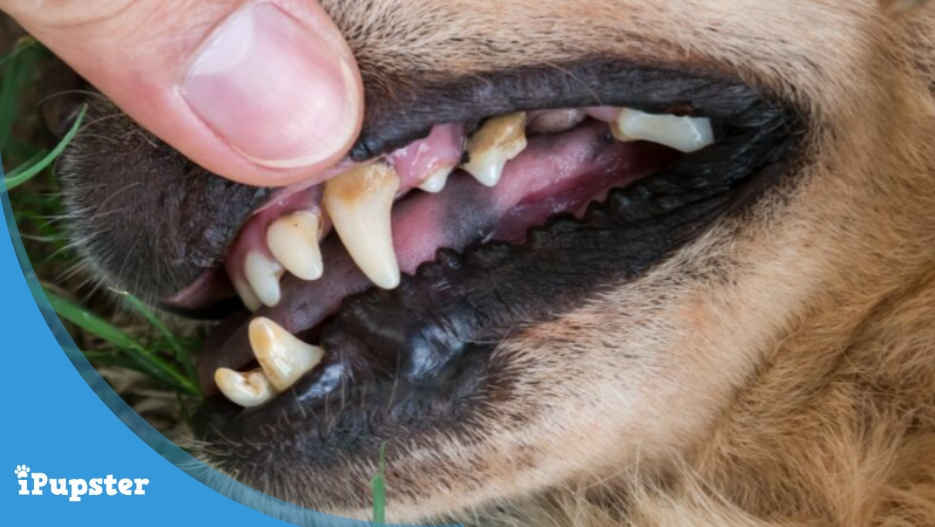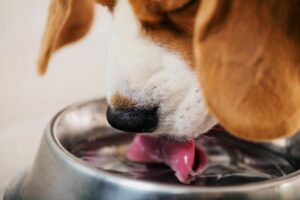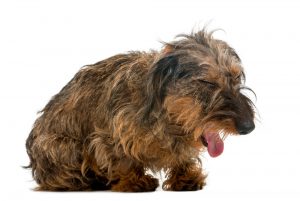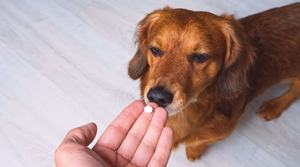
Reviewed & Fact-Checked by
Dr. Paula Simons
Veterinarian (DVM)
Learn more about our Veterinary Review Board »
You have probably heard about the importance of keeping your teeth clean to prevent plaque forming and cavities and gum disease from developing for most of your life.
It's just as important for your dog to prevent dental plaque from ruining their teeth as well. Unfortunately, this is not an area of dog health that many pet parents know a lot about or do enough to prevent.
Dental health is important because more than 80% of dogs older than 2 years of age are suffering from dental plaque.
What Is Dental Plaque in Dogs?
Even though dogs don't eat sweets or consume sugar in the way that some humans do.... (or at least they should not) dogs do eat, and as is the case for us, dental plaque can begin forming on their teeth not too long after they take the first bite of their first meal of the day.
Dental plaque in dogs is very similar to that in humans. It forms when the bacteria naturally present in the mouth mix with tiny bits of leftover food and saliva. Over the course of a few hours, this forms a film on the teeth and gums. In dogs this is particularly true of their upper premolars and molars.
What Causes Dental Plaque in Dogs?
As just mentioned if this plaque is not removed quickly and is allowed to remain on the teeth, it will slowly harden into tartar. This is a harder, calcified substance that can permanently damage both the teeth and gums, leading to tooth decay and gum disease called gingivitis.
What your dog eats is not so much of a factor. A dog's diet is not usually as varied as that of our own.
While some people are advocating a raw diet to help prevent dental plaque and keep canine teeth healthy, there is no clinical evidence to support that claim at this time.
Dental plaque and dental decay are not specific to any one breed of dog either.
The physiological makeup of some dogs makes keeping their teeth clean and healthy more of a challenge. This includes short-muzzled breeds and toy breeds in general. Their smaller mouths are simply harder to clean.
According to the American Veterinary Medical Association, a mere 1% of dog owners brush their pet’s teeth regularly.
Untreated dental plaque, and the oral problems it can cause, are not the only reasons to take better care of your dog's oral health.
Tooth infections and gum disease can lead to other, more serious problems throughout the body, including permanent organ damage.
How Can I Tell If My Dog Has Dental Plaque?
If you are not making an effort to clean your dog's teeth on a regular basis there is a 99% certainty that they have plaque on their teeth.
How can you tell if this is becoming tartar, or if they are suffering from tooth decay or gingivitis?
Look out for the following:
- Bad breath
- Noticeable yellow build-up on their front teeth
- Swollen gums
- Bleeding gums
- Eating only on one side of the mouth
- A decrease in the amount they eat
- Weight loss (due to eating less)
- Loose teeth
How Is Dental Plaque and Dental Disease in Dogs Diagnosed?
If you don't clean your dog's teeth on a regular basis when you head to the vet two things are almost certain: they will find your dog to have (at least) a build-up of dental plaque on their teeth and you, as a pet parent, will get a serious talk from the vet.
A thorough dental cleaning under anesthesia, and brushing your dog’s teeth, is considered the “gold standard” by vets for maintaining your dog’s oral health.
The vet will, after cleaning the dog's teeth themselves, then look for other problems like decay, cavities, cracked or chipped teeth and gum disease.
Dental radiographs will be performed to look at disease under the gumline.
Any further treatment will depend on what needs to be done. Dogs can be given root canals, and very bad teeth need to be extracted.
Dogs teeth can be deep cleaned and polished too, just like a human's (although they don't need, or get, the cosmetic whitening procedures that many of us do).
Although not common, some insurance providers do offer limited dog dental insurance coverage in the case of a dental accident, a chipped tooth, or gum disease.
Recovery and Prevention of Dental Plaque and Tartar
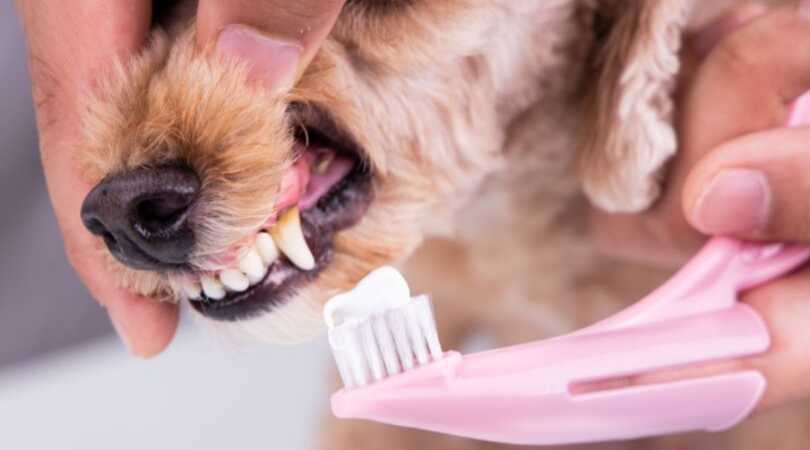
Most doggie dental procedures are relatively straightforward and they will recover from them in a matter of hours, or, in the case of more serious procedures like a root canal or extraction, a few days at most.
Canine dentistry, though very advanced these days, can also be very expensive, so home dog dental care is a great way to keep your puppy's teeth healthy.
You can save yourself money on expensive procedures for dental health problems that were probably quite preventable with routine dental care at home.
If you or your dog are not big fans of toothbrush and toothpaste, try sprinkling Plaque Off on your dog's food. This helps soften the plaque on your dog's teeth so that it scrapes off easier when they chew on things.
The biggest key to preventing the problems is via regular teeth cleaning. Ideally, a dog's teeth should be cleaned once a day, but as it can be a challenge 3-4 times weekly may be enough, if other measures are taken too (more about those in a moment).
Getting a dog used to having his teeth cleaned can be hard, especially if it is not something you introduced when they are a puppy. It takes practice to clean a pup's teeth with a toothbrush.
Begin by using a soft cloth, or a specialist dental wipe. Cleaning with a toothbrush and dog toothpaste (like the Sentry Petrodex Enzymatic Dog Toothpaste) is far more effective, however, so ask your vet to give you some help and guidance, they'll be happy to do so (and pleased that you want to try).
You may have noticed that pet stores usually carry a selection of dental teeth cleaning' treats, bully sticks to chew on , and dog toys that claim they can help teeth clean as well.
Many of these can be very useful, and there is certainly no harm in using them - the opposite in fact, they can be beneficial, but they are no substitute for proper teeth cleaning.
It is not recommended to give dogs hard bones to chew as these are likely to lead to broken teeth. Stick to toys suitable for chewing.
Of all the health problems that can affect your dog, dental disease caused by plaque is one of the most common but also one of the most easily preventable diseases.
If you can get into the habit of keeping your dog's teeth as clean as possible at home, feeding them a diet with enough calcium (which is good for their teeth), and then scheduling a professional cleaning at your vet every six months or so you will be doing a lot to prevent dental plaque from ever becoming a problem and keeping your pup's smile sparkling clean.

